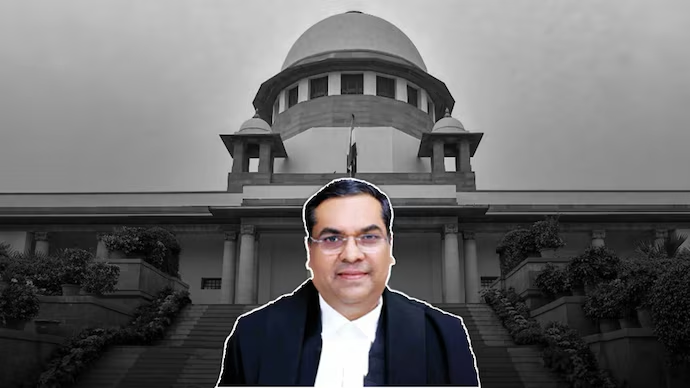Newsmatro

Justice Sanjiv Khanna, the second senior-most judge of the Supreme Court and the presumed future Chief Justice of India, has emerged as a pivotal figure in the legal battles surrounding the Aam Aadmi Party (AAP) and the alleged Delhi excise policy scandal.
With numerous cases related to the liquor controversy awaiting adjudication in his court, Justice Khanna’s decisions hold significant implications for AAP’s political trajectory.
Amidst escalating scrutiny and a series of arrests targeting AAP’s top leadership, the legal landscape has been fraught with challenges for the party.
Despite occasional exceptions, courts and judges have generally been unsympathetic to AAP’s pleas, adding to their legal woes.
Many of these cases have found their way to the Supreme Court, where benches presided over by Justice Sanjiv Khanna have played a crucial role.
As the ‘master of the roster,’ the Chief Justice of India determines which judge hears which case, effectively positioning Justice Khanna at the forefront of AAP’s legal ordeal.
On May 10, a bench led by Justice Khanna, alongside Justice Dipankar Datta, is scheduled to deliberate on the matter of granting interim bail to Delhi Chief Minister Arvind Kejriwal for campaign activities during the ongoing general elections.
The Enforcement Directorate (ED) vehemently opposes Kejriwal’s interim bail, questioning the legal validity of campaigning rights in this context.
Beyond Kejriwal’s bail, the Supreme Court is poised to address broader questions regarding the legality of his arrest and the ED’s powers under the Prevention of Money Laundering Act (PMLA).
Justice Khanna’s bench has indicated its intent to scrutinize Section 19 of the PMLA, which governs the ED’s arrest powers, underscoring the case’s far-reaching implications.
Justice Khanna’s previous rulings in related matters provide insight into his judicial approach. In October 2023, he, along with Justice SVN Bhatti, denied bail to former Deputy Chief Minister Manish Sisodia in the excise policy case.
However, the bench afforded Sisodia the opportunity to seek bail again if trial delays occur. Subsequently, in March 2024, a bench led by Justice Khanna, along with Justices MM Sundresh and Bela M Trivedi, refused relief to BRS legislator K Kavitha, highlighting the importance of upholding statutory and constitutional values.
Despite the legal setbacks, Justice Khanna’s bench, including Justices Dipankar Datta and PB Varale, granted bail to AAP MP Sanjay Singh after the ED reluctantly consented to his release.
As Justice Khanna prepares to rule on Kejriwal’s interim bail and navigate AAP’s legal challenges, his pivotal role underscores the significance of his decisions in shaping the party’s future amidst the Delhi excise policy imbroglio.